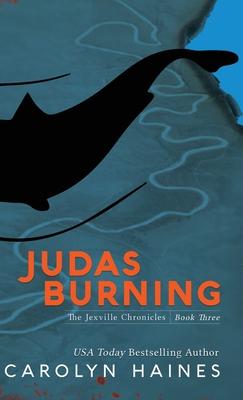In the concluding story of The Jexville Chronicles trilogy, Dixon Sinclair moves to Jexville to run the local paper, resolve the turmoil over her father's murder. She moves into the McVay house, which is her heritage. Running the local paper is her last-ditch attempt to save herself. Two teenage girls disappear from a sandbar on the Pascagoula River. When the bodies are found, hung and burned, it's clear that something other than simple murder is at work. Couple that with attacks on the local Catholic Church, and Dixon's research brings up the possibility of Judas burnings-a ritual to exorcise evil. Dixon trusts no one, but she must work with Sheriff J.D. Horton even though she suspects he's protecting an older river man, Eustace, and his companion, a much younger and psychologically damaged woman. When the investigative focus shifts to a young Mexican transient, the town is ready to mete out justice, unless Dixon and J.D. move to stop it.

In the concluding story of The Jexville Chronicles trilogy, Dixon Sinclair moves to Jexville to run the local paper, resolve the turmoil over her father's murder. She moves into the McVay house, which is her heritage. Running the local paper is her last-ditch attempt to save herself. Two teenage girls disappear from a sandbar on the Pascagoula River. When the bodies are found, hung and burned, it's clear that something other than simple murder is at work. Couple that with attacks on the local Catholic Church, and Dixon's research brings up the possibility of Judas burnings-a ritual to exorcise evil. Dixon trusts no one, but she must work with Sheriff J.D. Horton even though she suspects he's protecting an older river man, Eustace, and his companion, a much younger and psychologically damaged woman. When the investigative focus shifts to a young Mexican transient, the town is ready to mete out justice, unless Dixon and J.D. move to stop it.